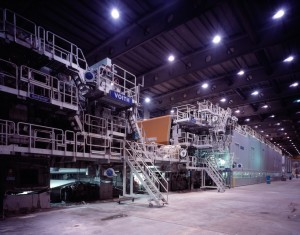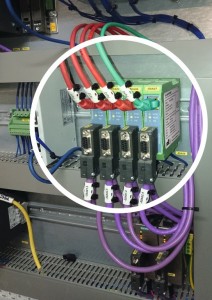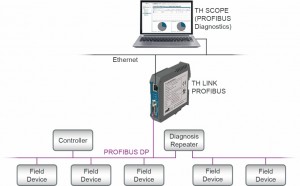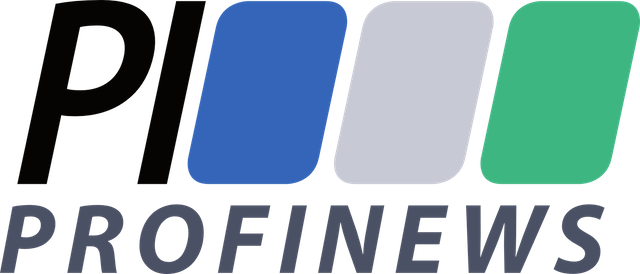Corrugated Board à la Carte – Intelligent PROFIBUS early warning system prevents production losses
Even modern fieldbuses like PROFIBUS are unable to maintain their perfect post-installation condition indefinitely. Some “aging” is inevitable and this could eventually lead to bus faults and costly production losses. These problems can be avoided by continuously monitoring the PROFIBUS networks. The Softing solution deployed at the Aschaffenburg paper mill delivers benefits that receive the “thumbs up” from its staff.
Established almost 150 years ago, the DS Smith paper mill in Aschaffenburg is one of the oldest in Europe, but because it has been regularly modernized and equipped with the latest technology, it is still able to satisfy the highest customer expectations and meet a wide variety of technical specifications. The paper mill’s most popular product is low basis weight corrugated paper, which the company has been producing from 100% waste paper since 1990. The company’s paper machine can produce up to 1,400 meters of paper, 7.53 meters wide, every minute, giving the paper mill in Aschaffenburg an annual production capacity of 400,000 metric tons of high quality paper.
Preventing Production Losses

This output capability is possible thanks to a high level of automation throughout the paper mill which, in addition to the paper machine itself, comprises a waste paper treatment area, a biological wastewater purification plant, a water treatment plant, a waste incinerator, and a gas and steam turbine power plant. All of these areas are linked by a central process control system. One of the keys to this system is the seamless data exchange handled via PROFIBUS. This fieldbus offers the benefit of robust digital data transmission. It is worth remembering, however, that even if an installation has been carried out properly, the operating reserves for the fieldbus communication will gradually decrease in normal operation, which can eventually lead to serious communication problems. This may be due to EMC influences, or a broken connector or a faulty bus terminator, which is often caused by oxidation. No matter what the cause, the consequence will be unexpected production downtimes resulting in high financial losses.

The Aschaffenburg paper plant had their share of these problems. But DS Smith refused to accept the situation and in 2009 decided to fix it once and for all by continuously monitoring the status of the PROFIBUS networks. The first step was to define their current requirements: the solution adopted should not interfere with the systems already installed in the paper mill and should not add to the staff’s workload.
Solution Ready for Immediate Use
Having decided upon their requirements, DS Smith asked a number of vendors to demonstrate their equipment designed for continuously monitoring the PROFIBUS network. They then proceeded to test this equipment intensively over a period of several weeks. As a result of these tests, the TH LINK PROFIBUS solution from Softing Industrial Automation was selected for use in the mill.
TH LINK PROFIBUS is installed in a control cabinet (see Figure 2). It provides controller-independent access to PROFIBUS networks, as shown in Figure 3. TH LINK PROFIBUS requires no special configuration tools and can be integrated into a system without interfering with existing installations, and without having to power the system down. What is more, there is no need to change the bus addresses and no need to adapt the control program.

One of the key benefits is the continuous network diagnostics via passive listening to the PROFIBUS frames. This measures cycle times and can detect critical events including the number of frame retries or message retransmissions, restarts of PROFIBUS stations, device faults and diagnostic messages. This data enables timely conclusions to be drawn about the status of the bus communication and impending faults – while the PROFIBUS network itself is still working properly. This data can also be used to quickly produce a “good/bad” statement about the operational status of the equipment by comparing it with individually definable limits, such as the maximum number of frame repetitions. Any specific data can be accessed via an integrated web server connected to a central process control system, thus eliminating the need for on-site checks. TH LINK PROFIBUS can also provide intelligent troubleshooting support based on this data as well as statistics to help optimize network configuration. Another useful feature of TH LINK PROFIBUS is its ability to automatically send an email as soon as the PROFIBUS communication quality changes from “good” to “bad.”
A key factor in DS Smith’s decision to choose TH LINK PROFIBUS for its paper mill in Aschaffenburg was that the tool is not an active station in the PROFIBUS network and therefore does not change communication behavior, but simply monitors telegram traffic passively. Other important considerations for DS Smith were the ease of installation and that Softing’s solution did not require the installation of additional software.
Successful installation
As soon as testing had been concluded in September, 2009, the first two TH LINK PROFIBUS devices were installed in the Aschaffenburg paper mill. Soon afterwards, in November, DS Smith placed an order for 15 additional units to enable continuous monitoring of all the paper machine’s PROFIBUS networks as well as the waste paper treatment plant and the biological water purification plant. The result was convincing: “Because TH LINK PROFIBUS now alerts us in advance to potential problems that we can fix while the plant is still operational, we have been able to reduce the paper machine’s downtime considerably,” says Joachim Gutjahr, Head of Automation Technology at the Aschaffenburg paper mill. “This has enabled DS Smith to reduce its losses significantly.”
Since the company began using TH LINK PROFIBUS, it has continually expanded the monitoring system, with the result that all of the paper mill’s PROFIBUS networks – a total of about 40 units including secondary installations – are now being monitored. DS Smith has also been using Softing’s TH SCOPE diagnostic software since 2013 to support the PROFIBUS diagnostics and preventive maintenance function and to obtain a summary of the monitoring results of all the PROFIBUS networks. This solution provides an in-depth presentation and analysis of all diagnostic data and requires no specialist knowledge.
Since the solution was chosen and the first units installed, Wolfgang Gross, a planning and automation engineer in the Automation Technology department, has been responsible for the operation of the TH LINK PROFIBUS in the mill: “I particularly appreciate the email alerts on potential problems. These enable me to maintain a detailed overview of the communication performance of all our systems at all times from my office without having to go out and check each PROFIBUS network individually. This user-friendliness confirms that our choice of diagnostic solution was the right one. And during all of this time, our experience of Softing has been very positive.”
Authors:
Dr. Christopher Anhalt, Senior Product Manager Diagnostics, Softing Industrial Automation GmbH
Dipl.-Inform. Georg Suess, Operational Marketing, Softing Industrial Automation GmbH
